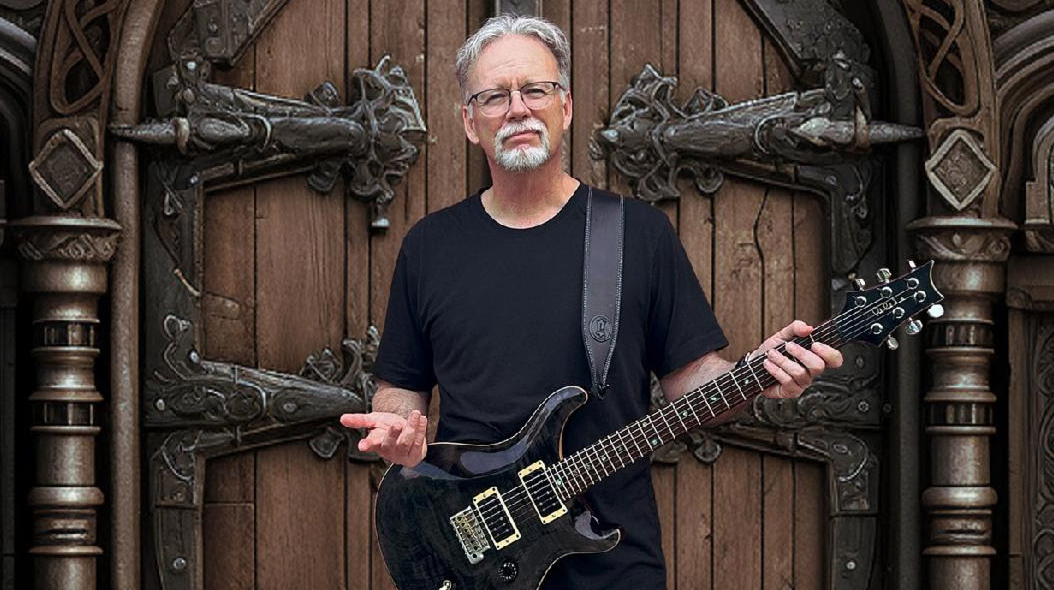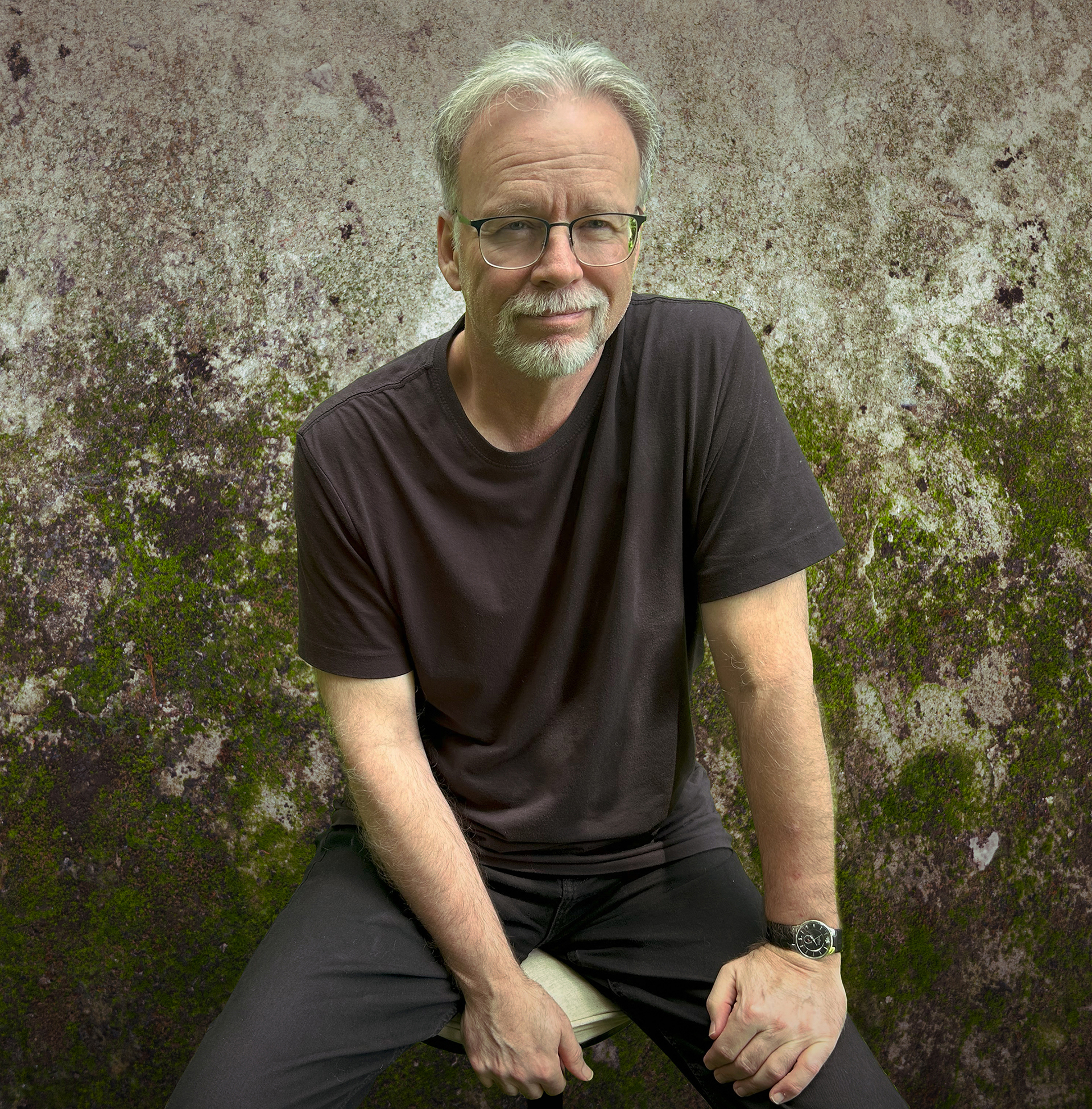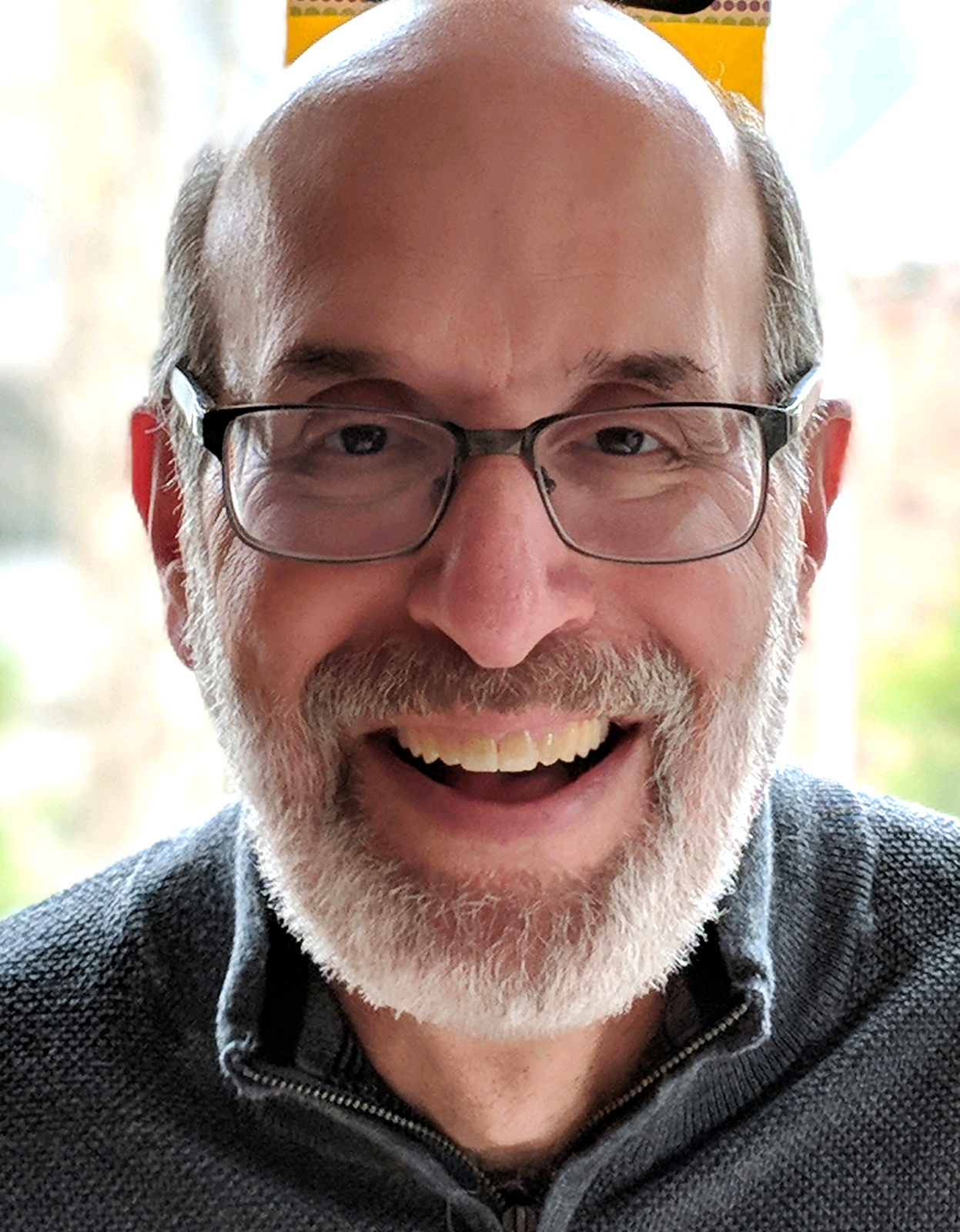Who is Chris Herin and why are Peter Frampton, Alex Lifeson and Martin Barre playing lead guitar on his new album?
The Tiles guitarist calls himself “one of the luckiest guys” to have such famous six-string connections

As he neared the end of recording his first solo album, Hiding in Plain Sight, Chris Herin was approached by the Laser's Edge Records owner Ken Golden with a question.
"He said, 'You've got all these guitar players on here. Did you do any of your own soloing?' " the Michigan-based Herin recalls with a laugh. "I said, ‘Well, you bring up a good point.' I didn't end up doing a whole lot of soloing on this. I'm mostly there as a songwriter, and I play almost all of the rhythm guitars and different fills and embellishments.
"I guess you could say I got a bit carried away bringing all the guitar players for all the lead work."
But it's an impressive corps Herin assembled for the 11-song set — one that might lead some to wonder how this guy who has limited (but not unsubstantial) stature get all these people to play on his album.
Hiding in Plain Sight — co-produced by Herin and Terry Brown (Rush, Cutting Crew, Fates Warning) — features contributions by the likes of Peter Frampton, Rush's Alex Lifeson, Jethro Tull alumnus Martin Barre, Kim Mitchell and Crown Lands' Kevin Comeau. In all more than 30 musicians are part of the project, including a cadre of vocalists ("I'm not much of a singer," Herin confesses) and other instrumentalists.
"I'm certainly one of the luckiest guys when it comes to being able to enlist so many fabulous musicians — not just the marquee-value guys but some of the other guitarists and drummers who aren't elevated into the stratosphere end of the general public's awareness," says Herin.
Herin isn't exactly unknown. He's the cofounder of the Detroit prog quartet Tiles, a group that's been in existence since 1993 and is one of the first bands signed to Germany's InsideOut Music. Tiles earned international acclaim with its six studio albums but went on hiatus during 2018 after singer Paul Rarick retired, giving Herin an opening to do something on his own.
All the latest guitar news, interviews, lessons, reviews, deals and more, direct to your inbox!
"Over the years I've demoed songs with Terry as they cropped up," he says, "and I wanted to memorialize them so they didn't slip through my fingers. These songs had been developed up to a certain point with guitar parts, bass parts, some placeholder drum patterns, and I could kind of hum the melody lines. I thought, Well, jeez, these songs are fairly well developed, and I liked them all. So I thought, Let's finish these off and put them out to the public."
"I looked at the variation in the compositions as a good thing, and hopefully people will like that variety."
— Chris Herin
Fans of Tiles — and of Discipline, another Detroit band Herin works with — might be surprised by the results. While prog and what he calls "melodic rock songs" are the core of Hiding in Plain Sight, the material stretches in a few different directions, whether it's the straightforward mainstream rock of "The Heart of You" (which features Frampton), the elegiac madrigal of "Living in the Night" or the jazzy touches of the album-closing "White Dandelion."
"I didn't feel like I needed to stick really close to what I had written with Tiles," explains Herin, who played primarily his 1990 Paul Reed Smith with the occasional Fender Stratocaster and Telecaster and Gibson ES-335 for "a nice blend of tonality." He used a Mesa/Boogie 2/Ninety power amp with a Boogie TriAxis preamp and a John Petrucci signature head, as well as a Mesa TA15 with an open-back cabinet when he was working at Brown's studio in northern Ontario.
"I think it was just natural the way the songs came out," Herin continues. "I looked at the variation in the compositions as a good thing, and hopefully people will like that variety."
The guests, meanwhile, came from a combination of "my associations and Terry's connections," according to Herin, and the two "recruited people and kind of aligned them with the style of songs and what we felt would be suitable for their contribution." Lifeson says Brown contacted him during April 2019 and delivered his work by September of that year. "Chris is a well-rounded player, and his songwriting has a nice balance of instrumental and vocal pace that accommodates atmospheric layers of instrumentation," Lifeson says. "It was a pleasure for me to add to his work."
And Herin was happy to showcase what he felt was some different kind of playing from Lifeson on "Second Ending."
"He's not playing a solo and he's not playing power chords," Herin notes. "He's doing acoustic guitars and a whole tapestry of atmospheric soundscapes, and they sound really, remarkably beautiful."
For his part, Lifeson explains that, "I prefer to keep a relatively low profile when I'm guesting on another artist's work and look to provide a fuller background to their arrangement. I concentrated on the choruses and layered electric and acoustic guitars with an ambient approach." Herin says he's planning to create some alternate mixes "that focus on Alex's soundscapes and texture and will be a different experience to the entire band approach."

Brown also reached out to Frampton, who, like many of the album's contributors was struck by Herin's lyrics drawn from his late father's battle with Alzheimer's disease during the 2000s. "The unfortunate thing is almost everybody who participated had some close family member that has suffered from dementia or Alzheimer's," says Herin, who will donate some proceeds from Hiding in Plain Sight's sales to Alzheimer's charities. But having the newly minted Rock and Roll Hall of Fame inductee onboard for "The Heart of You" was a particular thrill, he adds.
"I've been a Peter Frampton fan for 40-plus years, so it was just so fun to have him participate," Herin says. "It's a pretty catchy pop-rock song, and he's got such an identifiable melodic sense, besides his touch and phrasing. He provided a little lead guitar in the intro and then the re-intro, and of course the solo. We left him a lot of space to stretch out on the ride out of the song, too.
"It was just so fun to hear his track all by itself and the effects he used. For a guy that's been around for a long time it was so great to see just how enthused he was in getting the sound he wanted, the effects he used, the microphone and the setting. He and Terry went back and forth and talked about the technicalities of that approach, which was pretty fascinating."
Barre, meanwhile, was full of surprises for "The Darkest Hour," a track that reunited him with longtime Tull drummer Doane Perry for the first time in more than a dozen years.
"Doane had already done his drum parts, so Martin was immediately kind of intrigued," Herin says. "I just asked if he would do a guitar solo in the middle of the song...and when we got it back from Martin he did the guitar solo but also did a bunch of great mandolin, additional electric rhythm guitars and, to our surprise, all of a sudden there's flute parts!” In addition to his guitar talents, Barre is an able flutist, saxophonist and mandolin player. “He clearly kept his flute skills up all these years.
"The one thing I can say about Martin, besides the uniqueness of his style, is he is playing just jumps right out at you. It has that presence...and it just took the song and elevated it with the energy that he brings through his playing."
For his part, Barre says that, "I love that I was given free rein on the track and gave it the full MB treatment — mandolin, flutes, floating guitar chords and a melodic solo. Essentially it's a great song, and I thought, Don't fuck it up!"
"I love that I was given free rein on the track. Essentially it's a great song, and I thought, Don't fuck it up!"
— Martin Barre
Herin has several songs he worked on for Hiding in Plain Sight but didn't include on the album, and he won't rule out the possibility of another solo effort. But his next move is "getting the Tiles machine back together" with drummer Mark Evans and bassist Jeff Whittle. Two epic-length tracks have been written so far, Herin says, and he doesn't expect it to be long before the proverbial LP's worth of tunes will be in hand.
"As this project was wrapping up I started to feel the energy to get back to writing, so I've got this huge backlog of ideas that just come popping out of your head," says Herin, joking that since he's "on the older end of the spectrum" he still uses a hand-held cassette recorder capture those. "We do need to take a different approach to the vocal chair; maybe now that I've seen what it takes to bring in guests that might be a new and viable approach that never used to be there, so there are some exciting possibilities."
Gary Graff is an award-winning Detroit-based music journalist and author who writes for a variety of print, online and broadcast outlets. He has written and collaborated on books about Alice Cooper, Neil Young, Bob Seger, Bruce Springsteen and Rock 'n' Roll Myths. He's also the founding editor of the award-winning MusicHound Essential Album Guide series and of the new 501 Essential Albums series. Graff is also a co-founder and co-producer of the annual Detroit Music Awards.


![Chris Herin: Warning Signs (feat. Michael Sadler [Saga] & Jeff Kollman) - YouTube](https://img.youtube.com/vi/ucL4jb0aLIM/maxresdefault.jpg)

